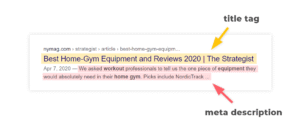Is SEO new to you? Hello there! You’ve arrived at the right place. Search Engine Optimization (SEO) can be intimidating for newcomers. And when it comes to SEO, keyword research is the first step in mastering it.
Learning keyword research is like learning a new language—it feels challenging at first, but becomes more manageable and rewarding over time. The right keywords help Google understand the relevance of your content and its relation to readers’ problems.
This guide on keyword research for beginners will walk you through the process step by step—no jargon, just simple, practical advice. Following these steps, you’ll learn to choose the right keywords to increase your website’s visibility and attract the right audience. Ready to dive in? Let’s simplify SEO step by step.
What is Keyword Research?
Keyword research is about understanding the exact words and phrases people use in search engines when looking for information. For keyword research for beginners, it’s essential to know that this process helps you create content that directly answers users’ questions. By aligning your content with what people are searching for, you improve engagement and boost your chances of ranking higher in search results.
Good keyword research tells you:
- Which terms get lots of searches
- What questions are people asking
- How your audience describes their problems
- Which topics are trending in your niche
Why Keywords Matter in SEO
Keywords are the foundation of all SEO efforts. They represent what your target audience is actively searching for. Think of keywords as the language questions your potential visitors ask.
For example, someone looking for a healthy smoothie recipe might search for “best green smoothie for weight loss” rather than “smoothie.” Matching their exact phrasing helps your content appear in their search results. When you address their problems using the right keywords, you increase your chances of ranking higher on search engines.
Understand User Intent
Keywords ensure your content matches what users are searching for. When you understand their intent, you can provide the exact information they need, improving engagement and search rankings.
Create More Relevant Content
By using the right keywords, you ensure your content matches user interests. This increases the chances of appearing in search results and keeps visitors engaged.
Attract Qualified Traffic
Well-researched keywords bring the right audience to your website. Targeting relevant terms ensures you attract quality visitors genuinely interested in your content, services, or products.
Build Effective Content Strategies
A strategic approach to keywords helps you plan your content. It lets you cover key topics, stay competitive, and build SEO success. A well-structured strategy also ensures consistency, making creating content that resonates with your audience over time easier.
How Keyword Research Helps Rankings
Data-driven keyword research improves your search rankings. It helps you find keywords for which you can rank. Rankings improve when you target keywords with the correct data for your niche.
Through proper research, you’ll discover:
- Which topics does your audience care about
- How difficult will it be to rank
- What content gaps can you fill
- Which keywords do your competitors miss
Thoughtful keyword research ensures every piece of content has purpose and direction.
SEO Keyword Research for Beginners: A Simple Step-by-Step Guide
How to Start Keyword Research
Let’s make this simple. If you’re doing keyword research for beginners, list the main topics related to your business or content. These will become your seed keywords. Think about how you naturally describe your business to a friend. The words you use are your first keywords. Then, consider what customers ask—these are often the best search terms. Their words are also usually different from industry terms.
Start by writing down those natural phrases and words. These are your seed keywords. Then, think about the questions your customers ask.
Types of Keywords
- Primary Keywords: The main keyword a blog post is targeting. It should be included in key SEO elements like the title, headings, URL, meta description, and naturally within the content.
-
- Secondary Keywords: Related or supporting keywords that add context and help search engines understand the topic better. They prevent keyword stuffing and improve rankings for multiple search variations.
- Seed Keywords: Seed keywords are broad search terms that form the foundation of keyword research and help generate more specific keyword ideas.
- Short-tail keywords: Concise and direct, like “yoga mat” or “pizza delivery.” These terms face fierce competition.
- Long-tail keywords: These are more specific phrases, such as “Best pizza delivery in Brooklyn” or “non-slip yoga mat for beginners.” They’re easier to rank for and bring more focused visitors.
- LSI Keywords (Latent Semantic Indexing): Related terms that help search engines understand the context (e.g., “search rankings” for an article on SEO).
Identifying Your Target Audience
Picture your ideal reader or customer. What problems keep them up at night? Your audience isn’t just data – they’re real people with real needs. Get to know them. Talk to your customers, read their comments, and join their online communities.
Think like your audience. What words would they type into Google? Use their language to find the best keywords.
Tools for Finding Keywords
Free Keyword Research Tools:
- Google Autocomplete
- Google Trends
- Answer the Public
- Google Search Console
Paid Keyword Research Tools:
- Ahrefs
- SEMrush
- Moz Keyword Explorer
- Ubersuggest
Start with free tools and upgrade when needed. Each tool offers unique insights into keyword opportunities.
Finding Low-Competition, High-Value Keywords
Let’s hunt for keywords you can rank for. Think of it as finding hidden gems. Look for keywords that major sites overlook. These are your golden opportunities.
A good low-competition keyword has at least 1,000 searches per month and isn’t dominated by large websites.
Analyzing Search Intent
Search intent is why someone types a query. Are they looking to buy, learn, or find a specific site? Type your target keyword in Google and analyze the top results. This shows you what people expect to see.
For example:
- “Pizza recipe” → Users want to make pizza
- “Pizza delivery” → Users wish to order pizza
If your keyword is ‘pizza recipe,’ provide step-by-step instructions. If it’s ‘pizza delivery,’ optimize for location-based searches and online ordering options
Optimizing Content with Keywords
Smart keyword placement makes your content shine. Put keywords where they matter, but keep it natural.
Best Places to Use Keywords
Using keywords strategically helps search engines understand your content and improves your rankings. Here are the best places to use them:
Title
Your title is the first thing both users and search engines see. A well-optimized title with the primary keyword increases your chances of ranking higher. Keep it clear, engaging, and relevant.
First Paragraph
Search engines prioritize the first few lines of your content. Including your keyword naturally in the opening paragraph signals relevance and sets the context for readers. Make sure it flows smoothly without sounding forced.
Headings
Headings (H1, H2, H3) help organize your content and improve readability. Placing keywords in headings enhances SEO and makes it easier for readers to skim through essential sections. However, avoid stuffing—use them naturally.
Meta Description
The meta description is the summary displayed in search results. It should include your target keyword and provide a compelling reason for users to click on your page. For example:
Tracking and Updating Keywords
Keywords aren’t set in stone. They change with trends and seasons. Check your rankings monthly. See which keywords bring the most visitors. Watch for new opportunities as your audience’s needs shift over time.
Use a spreadsheet or tools like Google Search Console to monitor keyword rankings and adjust your strategy over time.
Avoiding Common Keyword Mistakes
Even the best SEO strategies can fail if common mistakes are overlooked. Here are some pitfalls to watch out for:
Targeting Only High-Competition Keywords
Many beginners aim for broad, high-traffic keywords like “best shoes” or “digital marketing”. While these terms have high search volume, they are tough to rank for due to competition from established websites. Instead, focus on a mix of low-competition, high-value keywords that give you a realistic chance of ranking.
Ignoring Search Intent
Not all keywords serve the same purpose. A person searching for “how to bake a chocolate cake” wants a recipe, while someone searching for “buy chocolate cake near me” is looking to make a purchase. Failing to align your content with user intent can lead to poor engagement and higher bounce rates.
Forgetting About Local Terms
If your business operates in a specific area, neglecting location-based keywords can limit your reach. For example, “best dentist” is too broad, but “best dentist in New York” helps attract local traffic. Optimizing for local search terms improves visibility among nearby customers.
Choosing Keywords Without Considering the Audience
Your content should reflect the language and concerns of your target audience. Avoid selecting keywords based solely on search volume. Instead, consider what your audience needs and how they phrase their searches. Engaging with your audience through forums, social media, or customer feedback can provide valuable insights.
By avoiding these mistakes, you can create a keyword strategy that ranks well, connects with the right audience, and drives meaningful traffic.
Conclusion
Keyword research for beginners doesn’t have to be complicated. You now have the essential tools and understanding to start your SEO journey. Keep learning and adjusting your strategy. The SEO landscape changes, but solid keyword research principles remain the same.
Keyword research is a skill that improves with practice. Start now, refine as you go, and watch your website’s visibility grow.








